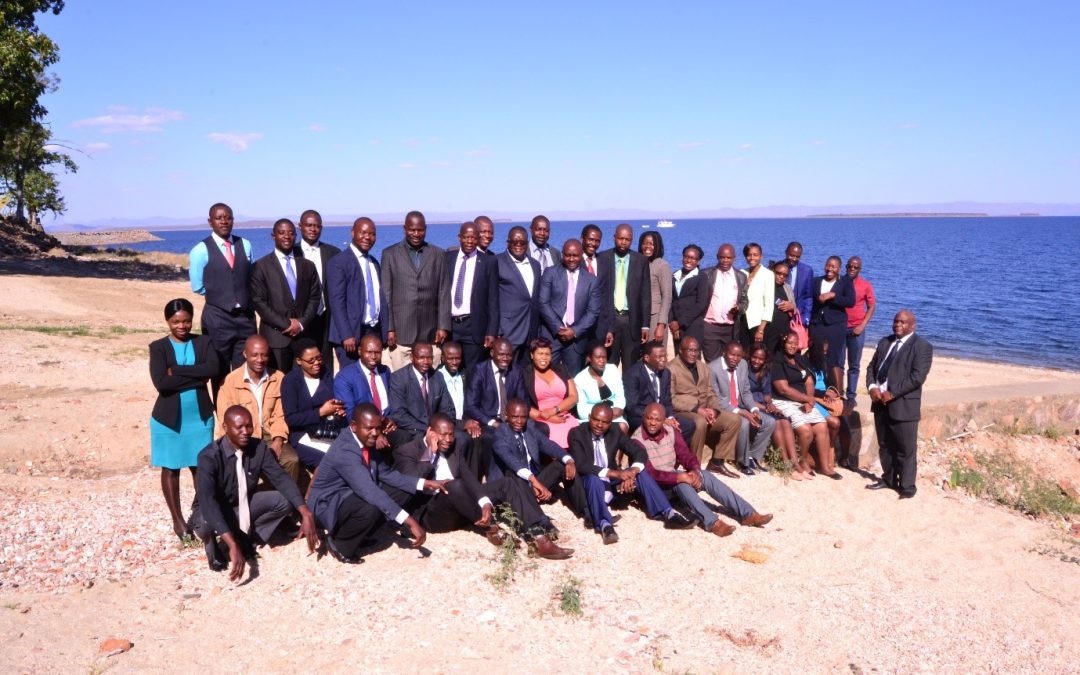Participants at the AML/CFT Awareness Workshop for Law Enforcement Agencies, held in Kariba from the 19th to the 21st of June 2019.
As part of Zimbabwe’s efforts to enhance its effectiveness in investigating money laundering, terrorist financing and related crimes (i.e. parallel financial investigations), the Financial Intelligence Unit (FIU), in conjunction with the Ministry of Finance and Economic Development, hosted an awareness workshop for law enforcement agencies. The workshop was held at the Carribea Bay Resort, in Kariba, from the 19th to the 21st of June 2019.
A total of fifty-five (55) specialized law enforcement agencies, drawn from CID Asset Forfeiture Unit, CID Drugs, and Zimbabwe Anti-Corruption Commission (ZACC), attended the workshop.
Presenters at the workshop were the: Chief Superintendent – CID Asset Forfeiture Unit; Chief Superintendent – CID Drugs; Deputy Provincial Chief Magistrate from the Judicial Services Commission; two Chief Public Prosecutors from the National Prosecuting Authority (NPA); two FIU senior managers; one senior officer of the ZACC; a senior officer from ZIMRA; and Head of Department for Forensic Auditing and Accounting, of Harare Institute of Technology (HIT) University.
The workshop aimed to equip the law enforcement agencies with the relevant skills they require to effectively conduct investigations of money laundering, terrorist financing and other related financial crimes, leading to convictions and confiscations.
The workshop managed to bring together the four players (FIU, LEAs, Prosecutors and Judiciary) key to realization of money laundering investigations, prosecutions, convictions, and forfeiture of proceeds of crime.
Participants to the workshop called for a coordinated approach to investigating ML and related offences, and a change of the mind-set amongst LEAs, when it comes to investigating money laundering, instead of only concentrating on the predicate offences. CID Asset Forfeiture Unit, CID Drugs, Zimbabwe Anti-Corruption Commission and National Prosecuting Authority gave assurance that, going forward, more money laundering investigations, which lead to convictions and recovery of proceeds of crime, will be recorded.
The National Prosecuting Authority and Judicial Service Commission argued investigators to gather sufficient evidence for ML and the predicate offences, before bringing their cases before the courts. Investigators were also urged to use the civil forfeiture provisions in money laundering cases where there will be no underlying predicate offence.
Similar workshops will be held in other provinces of the country, as part of the government’s efforts to ensure that crime does not pay.

